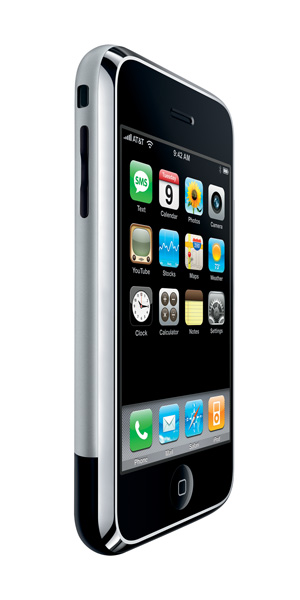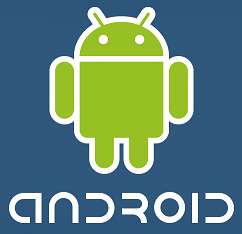For sometime now I have been carrying two smartphones with me, thanks to me being a Mobile Developer. Till yesterday there was a HTC Mozart(Windows Phone 7) and a Nexus One (Android Froyo), but today I had to swap my Nexus One for a iPhone 2G(iOS 3.1.3). While playing around with these phones, I realized both the iPhone and Mozart are first generation phones of their respective platforms. In that aspect, I have also used HTC Dream (G1, Android) for quite sometime. So the thought came to my mind, Amongst the 3 first generation phones, which is the best?
Which is the best 1st generation smartphone??
Posted by Codevalley Labels: android, dream, G1, iPhone, smart phone, Windows Phone, Wp7An early look at Froyo, a.k.a Android 2.2
Posted by Codevalley Labels: android, donut, Froyo, Galaxy, Google, GoogleIO, mobile phone, Nexus One, Samsung, SmartphoneWell, it has been a long time since I wrote. Mostly because I was busy with *other stuff* and also because I was smitten by micro-blogging [read twitter]. Now that I am back, I will start with the talk of the town, Android.
- Animations: Animations are smoother, and are more fluid. Like when you drag between home screens, you have a bouncing halt rather than a jerky switch.
- Applications menu: First they had the draggable applications menu, then the grid button, now they have the 3-icon set of Phone, Grid and Browser. And the applications screen is are bouncier and fast.
- Call Log: The call log is more organised. If same caller has multiple calls consecutively, they are made into an expandable groups, so you can seen more info. I liked it.
- Messages: The messages screen has been touched
 up a bit. Nothing special about it, but looks better.
up a bit. Nothing special about it, but looks better. - Android Market: This is big. Market has got lots of goodies. Now, you can set auto-update for any app, it downloads updates whenever available. Even better, you have update-all button to download all updates. Also there is a separate, comments tab for applications.
- Search Bar: Search bar is also enhanced with a drop down button, from which you can filter you search to Apps, Web, Contacts or All. I felt it was redundant though.
- Mail: This is a huge [I guess]. I don't remember being able to add multiple Google accounts to my phone before. Now, you can do that. You can add as many Google accounts you want into your GMail and sync the contacts etc.
- System speed: Though in general the system appeared faster, some places it lagged behind previous update. Like in the album application, the loading was pretty slow.
- Flash 10.1: This almost gave me a nightmare. I installed the firmware and went to every flash website I knew. None of them were loading. I checked the system settings. No mention of flash anywhere. I was bamboozled until I checked in the Android Market. You have to manually install the Flash plugin as an Application. And it is a beta. Nevertheless once I installed it I could check out all the flash websites and even games on browser. I checked the desktop version of youtube.com [though] the video playback was not very smooth. Had a low frame-rate playback.
- Applications: The manage applications screen also has minor make-ups. The biggest one being the ability to move installed applications to SD-Card to save space. But it was greyed out in my phone.
- Google Maps: looks faster in the new build. The tiles load very fast. So is the case with Google Earth.

Google's android, the new mantra or a damp squib?
Posted by Codevalley Labels: android, Google, Java, Open Handset Alliance, Symbia
There was a time when we would relate the term Google with "web searching". Even the Oxford dictionary has added a verb "Googling" which means searching something online. But, since the, Google has grown too big. Their web presence virtually spread to all around the spectrum from banner ads, social networks, Video hosting and what not. But it seems, Google is not ready to stop with what they have. They are now on the process of developing an OS, No, I am not talking about the Googubuntu. This time the stage is different.
Google last month, in a consortium called Open Handset Alliance, announced a new platform for the mobile, called Android. Android is supposed to be very flexible and support 3rd party apps to any extent. The kernel is basically built around a modified and trimmed version of Linux GNU 2.6 kernel, and the whole framework works on Java Language. Java apps for mobile are supposed to be very secure, while limited and rigid in functionality. Now, Google is all set to change this concept with Android. Saying that, the coding would not be in J2ME as in normal mobile Java programming. Android has its own set of APIs and function to play with.
Even though there was initial excitement on this news, soon there were dark shadows cast, when I came to know the Open Handset Alliance does not include the major players in the mobile industry, like Nokia, Sony Ericsson, Motorola etc, whom refused to accept the offer. (But still some like T-Mobile, Qualcomm, Intel, LG, Samsung, DoCoMo etc have lent their support.) Also, some already established mobile developers like Symbian, Microsoft, etc believe that this will only create more fragmentation rather than uniting the development.
But Google is again working with the magic world "Open Source", with Android. The android code is open and very easy to develop. They is offering a mammoth $10 million developers developing great apps for Android. But the news from Developers themselves is that Android is not very stable, at times it does not respond at all! But we need not take this very seriously since the actual Android release would be only by mid 2008, by which they can make the platform more reliable.
Android Home page
Android SDK Download
Android Wallpapers
codevalley








